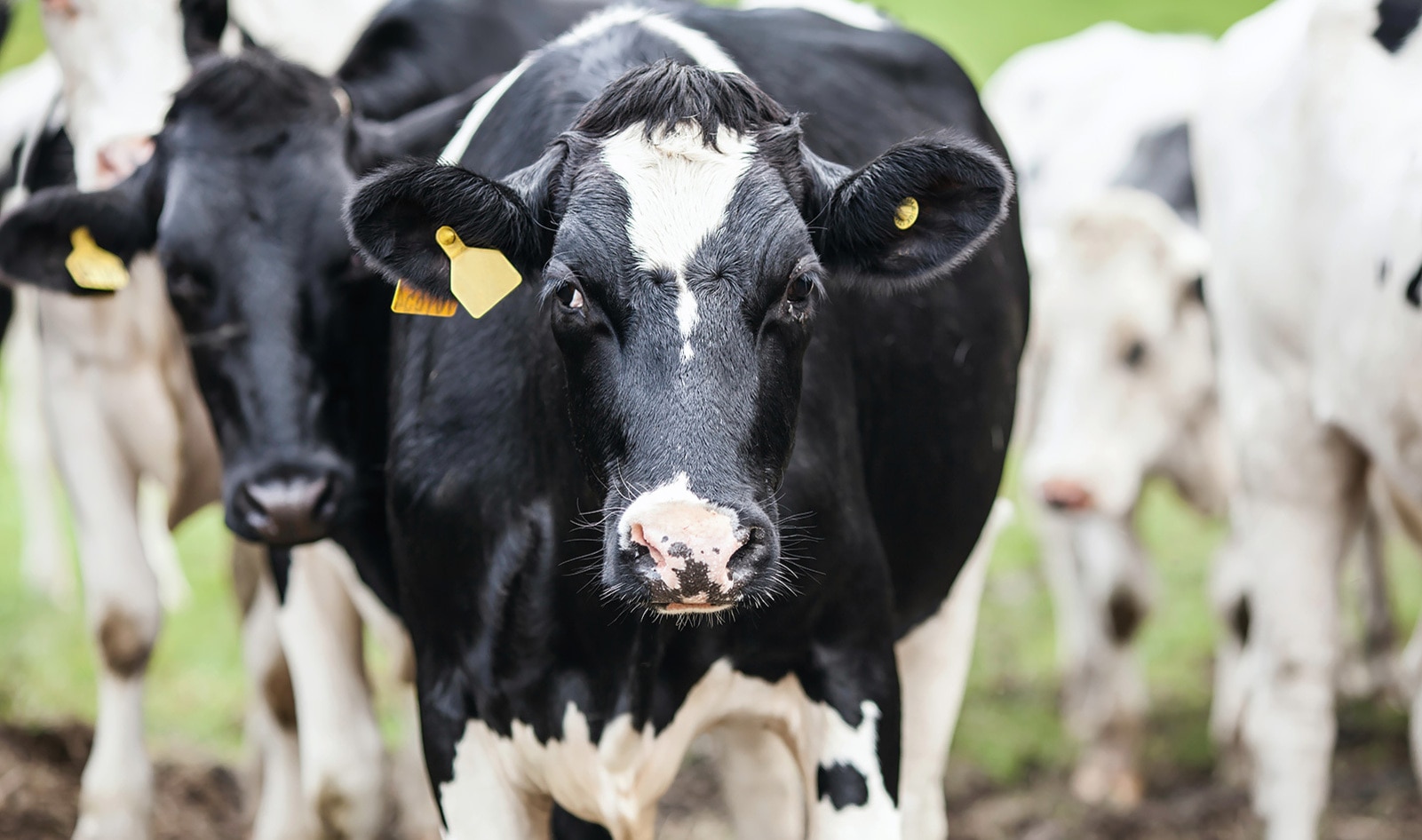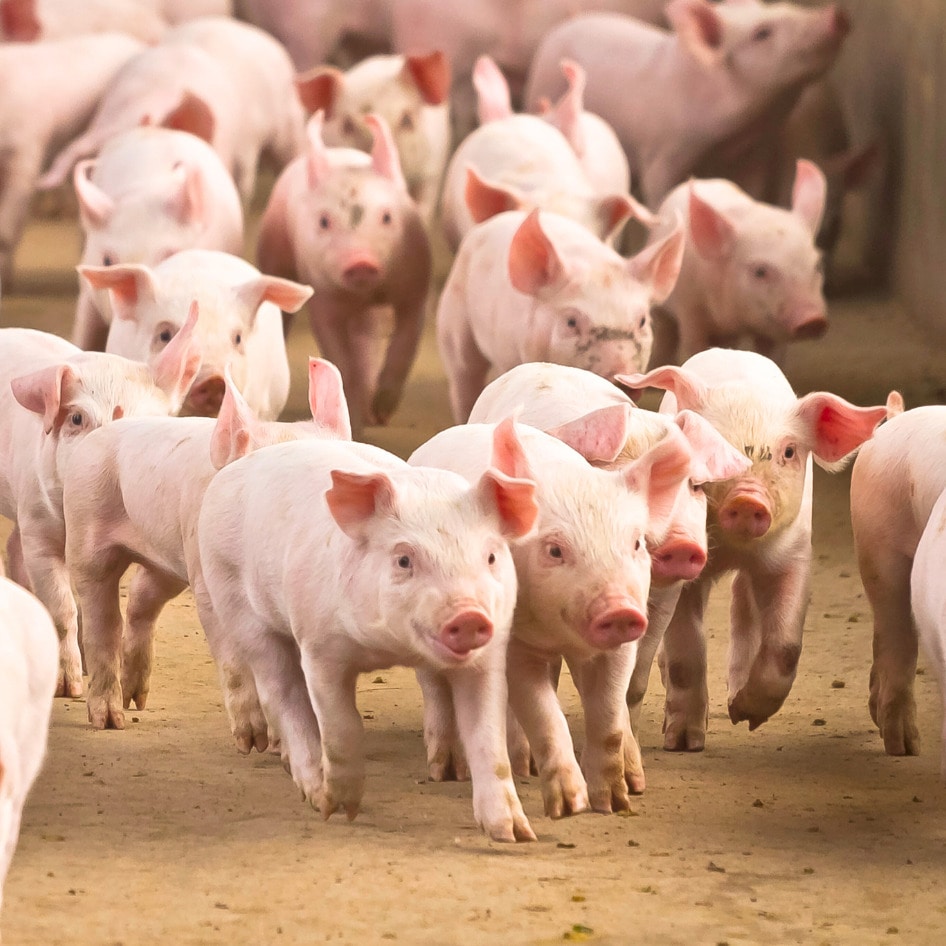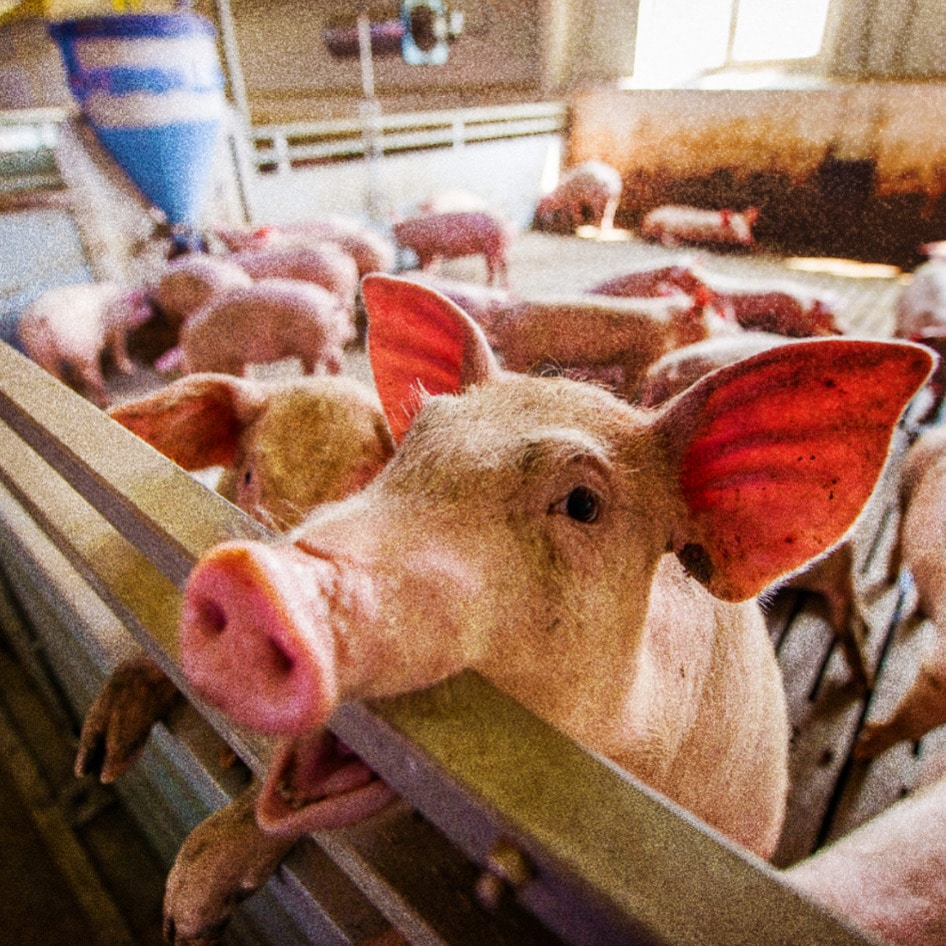The methane emissions of five of the largest meat corporations and 10 of the largest dairy corporations is equal to more than 80 percent of the European Union’s entire methane footprint, according to a new report from the Institute for Agriculture and Trade Policy and the Changing Markets Foundation.
The report also estimates that the combined methane emissions of these 15 companies—which include JBS, Tyson, and the Dairy Farmers of America—exceed the methane footprint of countries including Russia, Canada, Australia, and Germany.
The report says that individual companies’ methane emissions are also comparable to countries’ livestock-related methane emissions. For instance, methane emissions from JBS—the world’s largest meat processor—exceed the combined livestock methane emissions of France, Germany, Canada, and New Zealand and compare to 55 percent of US livestock methane.
Similarly, the Dairy Farmers of America, the company that contributes the most methane from dairy, produces emissions comparable to the UK’s livestock emissions.
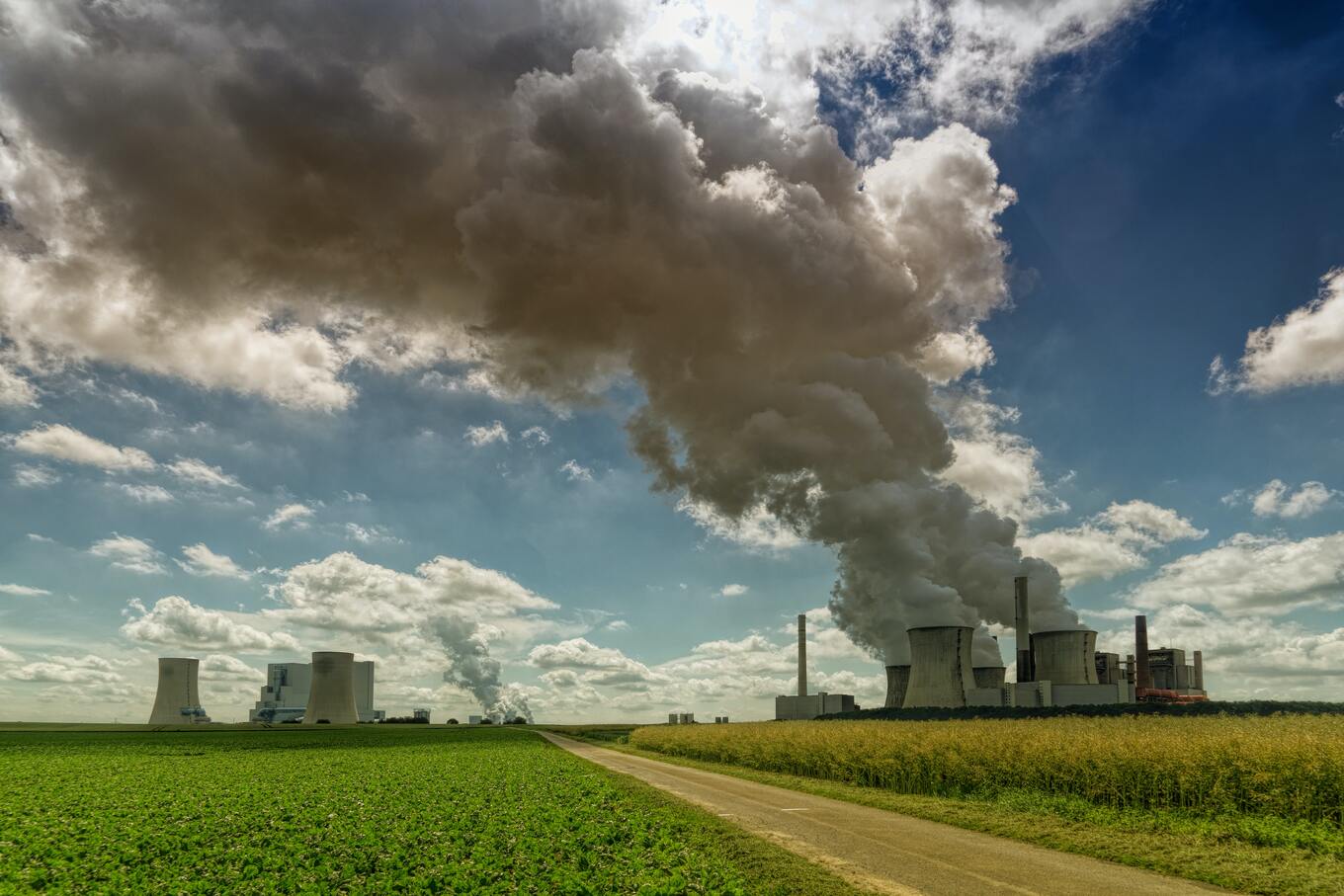
Johannes Plenio
And, notably, the overall greenhouse gas (GHG) emissions—including CO2—from the 15 companies exceed those of major oil companies such as ExxonMobil, BP, and Shell.
Methane is a potent GHG, and its unique properties have led climate scientists to call for rapid cuts in methane this decade. “This would buy us valuable time to avoid dangerous climate tipping points and to give humanity a chance to stay under a 1.5°C temperature increase while societies act to transition to zero emissions,” the report says.
Why is animal-produced methane a problem?
Methane from the meat and dairy industry is produced from manure and the digestion process of ruminants such as cows, sheep, and goats. Animal agriculture contributes 32 percent of the world’s methane emissions, making it the single largest source of human-made methane emissions.
Even if the world immediately stopped using all fossil fuels, scientists say that current emissions from the global food system would make it impossible to limit warming to 1.5°C and difficult even to realize the 2°C target.
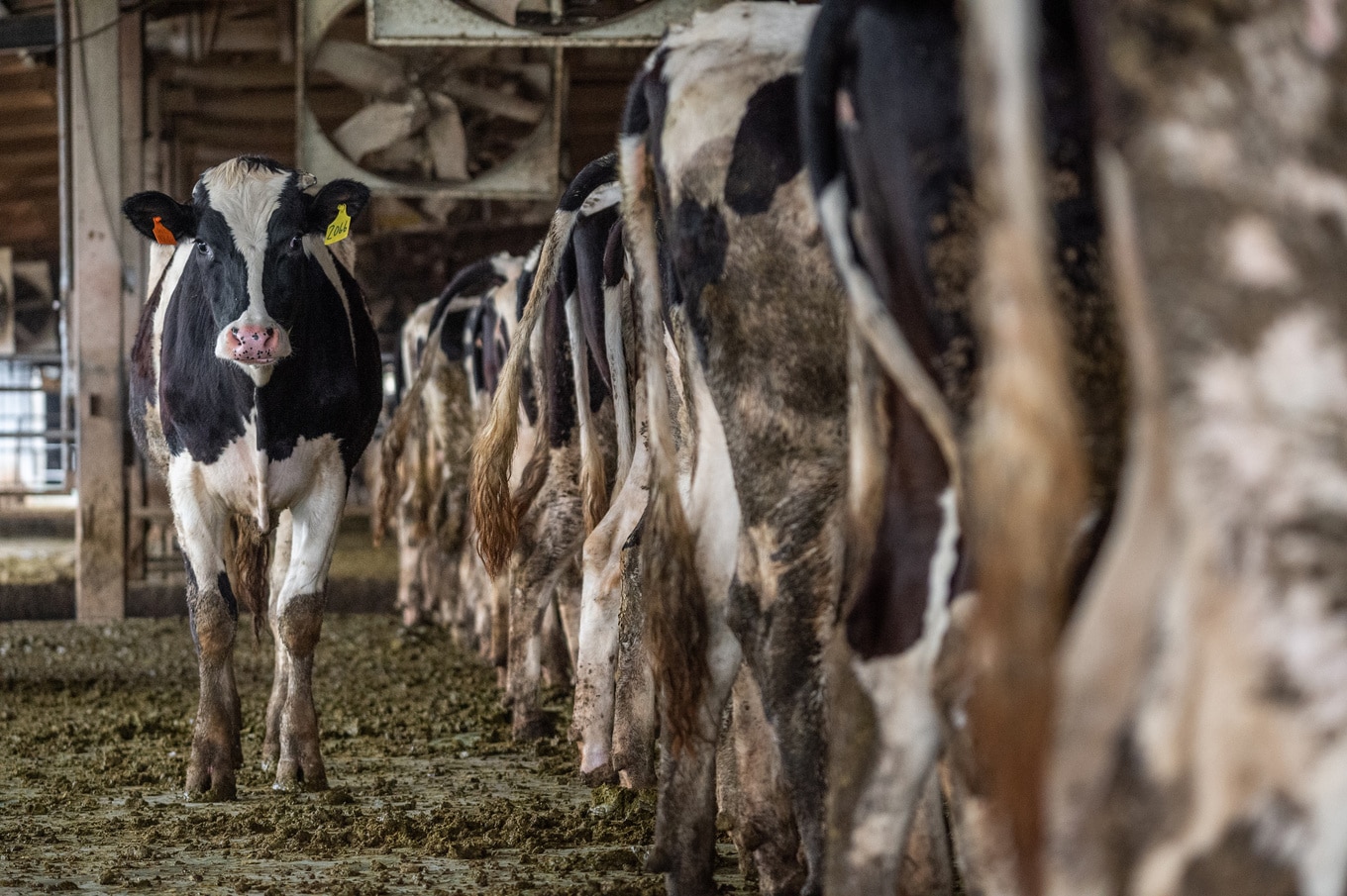
Jo-Anne McArthur / We Animals Media
Experts say that cutting emissions from methane, which is relatively short-lived but has around 80 times more warming potential than carbon dioxide, is critical in preventing catastrophic climate change. In addition to methane, large-scale production and dispersal of manure from industrial pork, dairy, and beef production is highly polluting in other ways by contaminating soil, water, and air with nitrates and ammonia.
“To tackle these emissions in a substantive manner, the number of animals in mass industrial systems of production must be dramatically reduced,” the report says. “This is the most effective measure to reduce emissions from animals themselves and emissions from their manure.”
Meat and dairy corporations are responsible for massive quantities of methane emissions as they raise and slaughter millions of animals around the world. Yet, in spite of their enormous climate impact, meat and dairy companies continue to operate in a regulatory vacuum, when it comes to reporting and reducing their GHG emissions.
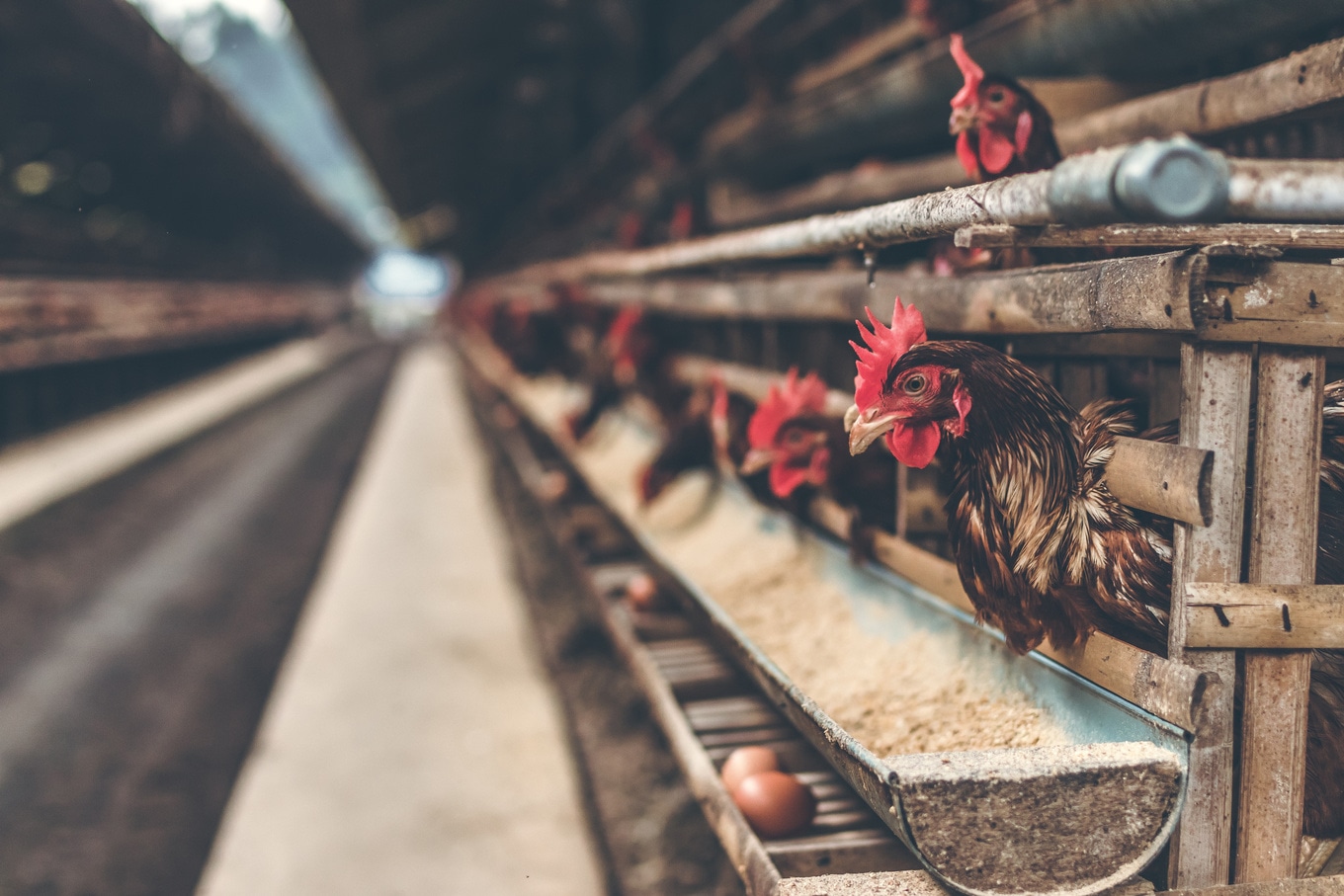
With the report’s key findings in mind, the authors are calling for urgent and ambitious legislation to address the significant climate impacts of global meat and dairy corporations and for governments to support a just transformation of industrial animal agriculture in an effort to reduce their impact on the environment.
“Time is of the essence in cutting back methane this decade. Yet policymakers have identified solutions that tinker around the edges of this extractive system of animal agriculture,” the report says. “A comprehensive set of regulations is needed to ensure that the burden for emissions reduction rests on corporations that shape and drive the supply chain.
Shifting to plant-based food reduces environmental impact
This new report adds to a growing body of research that emphasizes the need for climate action within industrial animal agriculture and methane emissions reduction efforts.

Alle 12
According to the latest report from the United Nations’ Intergovernmental Panel on Climate Change (IPCC), in order for the world to have any chance at reversing the climate crisis, methane emissions must be slashed by 33 percent by 2030. Although some areas of climate change mitigation have substantially decreased, the IPCC report, which was published earlier this year, explained that improvements in sectors such as agriculture and forestry are needed.
“It’s now or never, if we want to limit global warming to 1.5°C,” PCC Working Group III Co-Chair Jim Skea previously said in a statement. “Without immediate and deep emissions reductions across all sectors, it will be impossible.”
Studies demonstrate that a shift to plant-based diets rich in pulses, nuts, fruits, and vegetables could also lead to substantial reduction of GHG emissions compared to current dietary patterns in most industrialized countries.
“Where appropriate, a shift to diets with a higher share of plant protein, moderate intake of animal-source foods, and reduced intake of saturated fats could lead to substantial decreases in GHG emissions,” the report states. “Benefits would also include reduced land occupation and nutrient losses to the surrounding environment, while at the same time providing health benefits and reducing mortality from diet-related non-communicable diseases.”
For the latest vegan news, read:
JUMP TO ... Latest News | Recipes | Guides | Health | Subscribe

